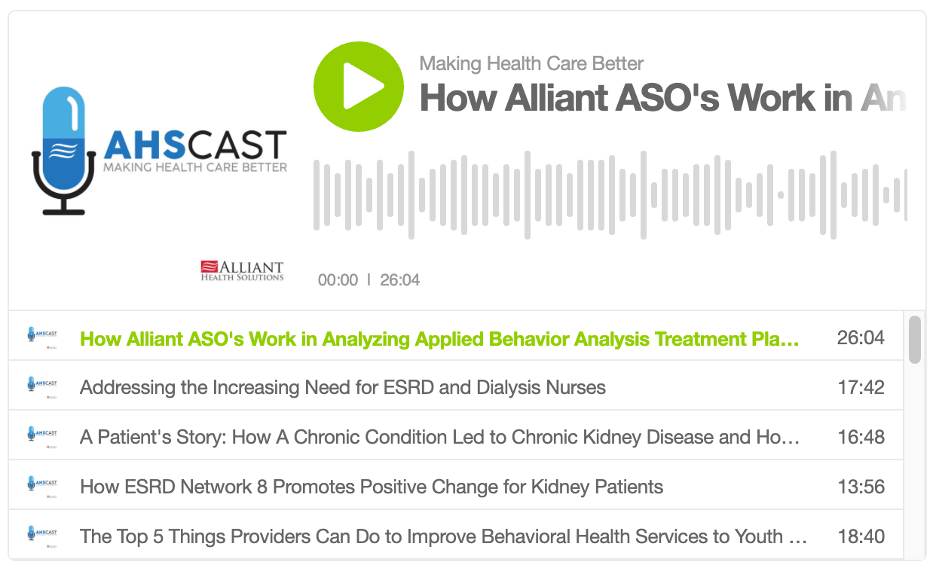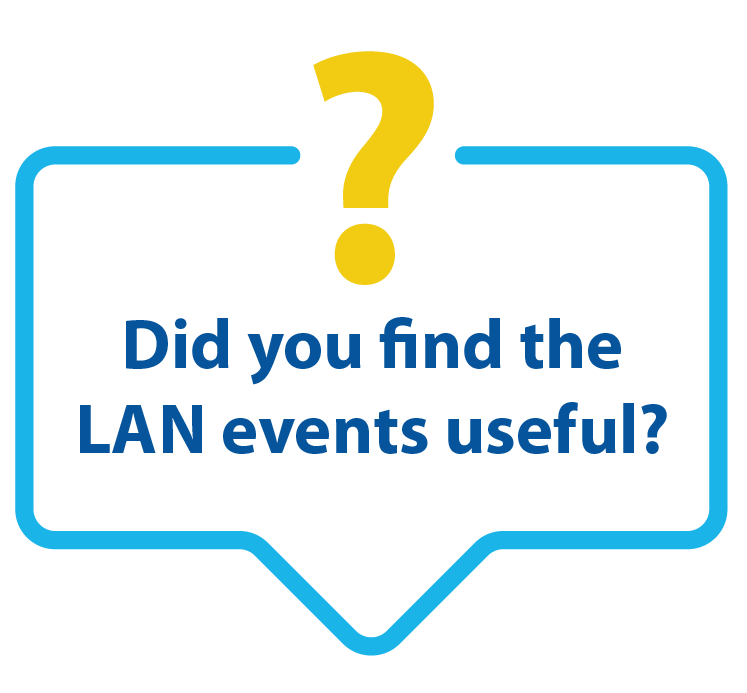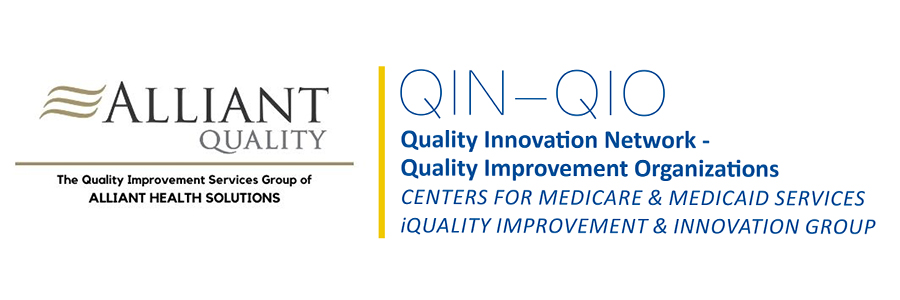|
|
|
|
Please share this email with friends or colleagues using these links:           
(Please do not forward the email as it may impact your subscription settings)
|
|
A monthly newsletter highlighting events and resources for Nursing Homes & Community Coalitions
In This Issue:
|

Pneumoccoccal Vaccines: Expanded SNF Enforcement Discretion for Certain Pharmacy Billing
Effective September 20, 2021, the Centers for Medicare & Medicaid Services (CMS) exercised enforcement discretion for skilled nursing facility (SNF) consolidated billing provisions related to flu and pneumococcal vaccines. This allows Medicare-enrolled immunizers, including pharmacies, to bill directly and get direct reimbursement from the Medicare program (including vaccine administration and product), whether these vaccines are administered at the same time (co-administered) with a COVID-19 vaccine or at different times. Visit the SNF: Enforcement Discretion Relating to Certain Pharmacy Billing webpage.
Vaccinations for respiratory illnesses reduce the impact and resulting burdens on the health care system during the COVID-19 PHE. The CDC recommends that patients in post-acute care facilities get the flu vaccine during the COVID-19 pandemic.
CMS Launches New Tool to Compare Nursing Homes Vaccination Rates
CMS is making it easier to check COVID-19 vaccination rates for nursing home staff and residents with a new feature on Medicare.gov. The tool makes vaccination data available in a user-friendly format to help people make informed decisions when choosing a nursing home for themselves or a loved one. CMS and the Centers for Disease Control and Prevention (CDC) continue to use this data to monitor vaccine uptake among residents and staff and identify facilities that may need additional resources or assistance to respond to the pandemic.
|
|
|
|
Our team is collecting and curating the essential trainings, events, resources, and vaccine updates about COVID-19 on our website so you can visit one page to find the information you need. We've also outlined the essentials below.
View All COVID-19 News & Resources
Training & Resources
Free COVID-19 Training: User Guide and Kudos Kit
The “CMS Targeted COVID-19 Training for Frontline Nursing Home Staff and Management” is a great resource for nursing home staff to put the latest information regarding infection control, COVID-19 preparedness, resident-centered care, vaccine distribution and other important topics into practice. These resources were designed to help nursing home teams access the free, on-demand trainings and celebrate the staff who complete them. Materials include:
- A user guide that contains everything a nursing home needs to access and complete the training. The user guide (also available in Spanish) walks you through a pre-training checklist, registration, course selection, contacts and more.
- A kudos kit that contains social media messages and graphics, a press release template, printable graphics and more to acknowledge the hard work and dedication of staff who take the critical step to complete the trainings. These items will help nursing home teams celebrate their accomplishments internally, while also promoting them to families and community members, social media followers and local media.
Download User Guide | Download Kudos Kit
Staffing Resources and Guidance
Check out this CDC website designed to enhance the frontline public health capacity in state, local, tribal and territorial health departments to intensify the coordinated response to COVID-19. View the Website
Vaccine Updates
Who is Eligible for a COVID-19 Vaccine Booster Shot? What You Need to Know
COVID-19 vaccine booster shots are available for the following Pfizer-BioNTech vaccine recipients who completed their initial series at least six months ago:
- 65 years and older
- 18+ who have underlying medical conditions
- 18+ who work in high-risk settings
- 18+ who live in high-risk settings
Learn More
Immunizations
- CDC Adult Vaccine Assessment Tool – Adults complete a questionnaire, and the results will tell them what vaccines are needed, ranging from the influenza vaccine to the shingles and Hepatitis A vaccines. The CDC does not retain personal information entered on the questionnaire and it applies to adults 19 years or older. The CDC recommends vaccines for adults based on age, health conditions, job and other factors. View the Assessment Tool
- COVID-19 Vaccine Booster Shots - The U.S. Department of Health and Human Services (HHS) announced plans to begin offering COVID-19 booster shots in the fall. Read the Article
- Interim Public Health Recommendations for Fully Vaccinated People – Summary of Recent Changes (Updated information for fully vaccinated people based on new evidence on the Delta variant) View Recommendations
- When You've Been Fully Vaccinated: How to Protect Yourself and Others View CDC.gov
- CDC Vaccine Finder Download Flyer | Visit VaccineFinder.org
- CDC Community Guide on Increasing Vaccine Uptake in Racial & Ethnic Minority Communities View Guide
- CDC Best Practice Guide on COVID-19 Vaccine Equity for Community & Faith Based Organizations View Guide
- CDC Ranks States by COVID-19 Vaccines Administered View Daily Data Tracker
COVID-19 Self-Management Zone Tool
Ascension Sacred Heart and Ascension St. Vincent’s, along with other Ascension health system hospitals and free-standing Emergency Rooms in the Florida panhandle and east coast regions, have shared their best practice use of the COVID-19 Self-Management Zone Tool as part of their COVID Safe At Home initiative, which they describe as a “life-line to our patients who are scared and fearful in the community battling COVID-19.”
The zone tool, also referred to as a stop light tool, is part of the discharge plan for patients presenting to Emergency Departments that are COVID positive, do not need an acute level of care and do need reassurance. Patients are discharged to home with a pulse oximetry unit, CDC guidelines and the COVID-19 Self-Management Zone (stop light) tool. Patients receive instructions on how to use a pulse oximetry unit and to compare their pulse oximetry measures to the green, yellow and red zones. Members of the COVID Safe at Home team conduct follow-up calls post discharge and talk through the zone supplementing the education provided in the ED. Patients whose pulse oximetry measures fall within the green zone are then guided on continued monitoring and advised to call if they feel they are in the yellow zone. Yellow zone patients receive calls every couple of hours until they improve and are in the green zone or decline and fall into the red zone. The COVID-19 Self-Management Zone tool is currently used in the Florida panhandle area with expansion this month into Alabama.
For more information on this best practice or the planned expansion of this tool to the inpatient setting, contact Sheila Richards, RN, BSN, MBA, Care Excellence Manager, Population Health, Ascension Sacred Heart Pensacola at Sheila.Richards@ascension.org or Kimberly Lewis, RN, BSN, Director of Quality and Patient Safety Ascension Florida Gulf Coast at Kimberly.Lewis@ascension.org. The COVID-19 Self-Management Zone Tool can be found on the Alliant Quality website in both English and Spanish. Get the Tool
We Can Do This: HHS Campaign to Increase COVID-19 Vaccine Confidence
The U.S. Department of Health and Human Services created a nationwide COVID-19 public education campaign to increase public confidence and uptake in COVID-19 vaccines while reinforcing basic prevention measures such as wearing masks and social distancing. Through consistent, fact-based public health messaging, the campaign helps the public make informed decisions about their health and COVID-19, including steps to protect themselves and their communities. The public education activities are organized around three themes:
- Slow the Spread: Basic prevention measures that should be taken while waiting for the vaccine
- Building Vaccine Confidence: Information and resources to build vaccine confidence, timed to support action when vaccines are available
- Preparing the Nation: Fact-based, scientific information about vaccine development, safety, and effectiveness
Download Campaign Resources and Toolkits
|
|
|
Leadership Lessons
Words of advice from leaders on the front lines.
This month’s leadership lesson is from Leighann Sauls, AHS program director for Georgia, Kentucky, North Carolina and Tennessee.
Focus on the Movable Middle: Strategies for Overcoming Vaccine Hesitancy
Vaccine hesitancy is a growing challenge. CMS convened a group of leading behavioral science experts from top institutions with expertise across organizational behavior, psychology, healthcare communication, and policy and marketing to identify opportunities for improving COVID-19 vaccine uptake among the long-term care facility staff population. The group provided a model for thinking about vaccine hesitancy among long-term care staff. In this model, there are three groups on the continuum of vaccine hesitancy:
- Vaccine acceptors
- Movable middle
- Vaccine refusers
Understanding your staff as individuals and where they fall across this continuum helps identify interventions for success. As the report suggests, rather than target all staff with a uniform intervention, the focus should be on the those in that fall in the movable middle – those who express varying degrees of hesitancy but are likely to change their minds.
Some successful strategies for the movable middle are:
- Leverage social influence, communicators and motivational forces to motivate staff
- Supplement information-based campaigns with peer to peer conversations
- Mitigate logistical and access barriers
For more details and recommendations, please review the final report. COVID-19 Vaccination Uptake Behavioral Science Task Force: Final Report - February 23, 2021
Additional resources on vaccine hesitancy:
Best Practice Corner
Each month Alliant Quality collects exemplar practices from organizations across the seven-state region. Thank you for your leadership, creativity, and perseverance.
New Website Offers Memorial Wall, Grief Resources for Alabama COVID-19 Victims
Alabama Forward, a diverse coalition of 501(C)(3) civic groups, developed a new website called “Shine a Light Alabama,” with a memorial wall for COVID-19 victims, grief resources, vaccination information and more. Visit the Website
Florida Public Service Announcement Encourages COVID-19 Vaccinations
The Florida Hospital Association and Florida Medical Association collaborated to develop a public service announcement called “Mommy-Get Vaccinated Today!” to increase the state’s COVID-19 vaccination rates. Watch The PSA
North Carolina Reaches 10 Million Doses of COVID-19 Vaccine Administered
North Carolina providers have now administered more than 10 million doses of COVID-19 vaccines, with vaccinations trending upward as the highly contagious Delta variant of the virus spreads through the state. Currently, 58% of the adult population in the North Carolina is fully vaccinated. Read More
East Tennessee University Awarded Cooperative Agreement to Support Innovations in Nutrition Program and Services
The Administration for Community Living recently awarded a community research cooperative agreement to East Tennessee State University to verify the effectiveness of innovative senior nutrition program practices and programs created in Tennessee during COVID-19. The research will positively impact senior nutrition participants by helping to transition and sustain congregate meal programs, and delivering impactful nutrition education. Read More
Do you have a promising practice to share? Please reply to this email and we will feature you in an upcoming issue.
|
AHSCAST - Making Health Care Better
 |
Everyone deserves quality health care.
Tune into the Alliant Health Solutions Making Health Care Better podcast every other Thursday as they interview guests committed to making health care better. If you are a health care consumer, provider, insurer, system, or consultant, this is the podcast for you. View All Podcast Episodes |
|
Events
|
Upcoming Learning & Action Network (LAN) Events
-
Nursing Homes: Practicing Antibiotic Stewardship in the Detection and Treatment of UTI
Tuesday, October 19 at 2:30 p.m. ET / 1:30 p.m. CT (30 min.)
Urinary tract infections in nursing homes impact patient and resident quality of life, quality measures and readmissions. Join the conversation with our physician speakers as they discuss current best practices around recognition, diagnosis, prevention, and antibiotic stewardship.
Register Now | View Agenda
-
Community Coalitions and HQIC: Applying a Framework to Advance Health Equity
Tuesday, October 26 at 2 p.m. ET / 1 p.m. CT (30 min.)
Advancing health equity requires a multifaceted approach. Join the conversation with our esteemed speaker as we learn about the Brooks PETAL Framework and how to use the framework as a guide for integrating a community driven approach to health equity into our work. Following this session, learners will be better able to:
- Identify an approach for integrating health equity
- Adopt the Brooks PETAL Health Equity Framework (Prioritize health equity; Engage the community; Target health disparities; Act on the data; and Learn and improve)
- The Science of Pain: Evidence-Based Approaches to Treatment
Wednesday, October 6 at 2 p.m. ET / 1 p.m. CT (60 min.)
Featured speaker Dr. Hayden Center will provide an overview of the neurobiology of pain. Participants will learn how opioids are used to treat pain and the limitations of this strategy.
Register Now | View Agenda
- Best Practices When Prescribing Opioids
Wednesday, October 20 at 2 p.m. ET / 1 p.m. CT (60 min.)
Speaker: Dr. Hayden Center
Cosponsor: Opioid Response Network
Register Now
Last Month's Learning & Action Network (LAN) Events
- Nursing Homes: Best Practices for Surveillance, Diagnosis and Treatment of C. Difficile
Recorded on September, 21 2021
View Recording | View Slides
- Community Coalitions: Care Planning for Successful Transitions During COVID-19
Recorded on September 23, 2021
View Recording | View Slides

Were You Able to "Use Tomorrow" What You Heard During the LAN Events?
If Yes, Click Below.
Nursing Homes LAN Attendees: Click here
Community Coalition LAN Attendees: Click here
Previous COVID-19 Event
Upcoming Infection Prevention Shop Talks
- October 2021 Shop Talk Call
Thursday, October 21 at 2 p.m. ET / 1 p.m. CT (60 min.)
Find out about updates and support for surveillance, tracking and infection prevention in nursing homes using the National Healthcare Safety Network (NHSN). This webinar is focused on submitting COVID-19 data but may include other components such as C.diff, UTIs, and hand hygiene.
Register Now
|
Resources
|
|
 Bringing Awareness to Mental Illness and Depression Bringing Awareness to Mental Illness and Depression
Each year, millions of Americans face the reality of living with a mental health condition. And with the impact of COVID-19, many more are experiencing anxiety and depression than in years past. That is why, from Oct. 3-9, the National Alliance on Mental Illness (NAMI) and participants across the country are raising awareness of mental illness, fighting discrimination and providing support through Mental Illness Awareness Week (MIAW). Mental health conditions are important to discuss year-round, but highlighting them during MIAW provides a dedicated time for mental health advocates across the country to come together as one unified voice. This year’s MIAW is centered around the awareness campaign, “Together for Mental Health,” where the importance of advocating for better care for people with serious mental illness is the focus.
Mental health is a person’s condition with regard to their psychological and emotional well-being. There is a wide range of mental health conditions/disorders that affect one’s mood, thinking and behavior. One example of mental illness is depression. Major depression is one of the most common mental illnesses, affecting 6.7% (more than 16 million) of American adults each year. Depression can occur to anyone, at any age, and to people of any race or ethnic group. Depression is not a normal part of life, no matter your age, gender or health situation.
Individuals with depression who receive effective treatment may have a full remission of the disorder. But, too many people resist treatment because they believe depression isn't serious, that they can treat it themselves or that it is a personal weakness rather than a serious medical illness.
How does one know if they may be suffering from depression? Take an online depression screening. Mental Health America screening tools are free, anonymous and confidential. More information can be found here: National Depression Screening Day (Oct. 7).
Note that screenings are not a professional diagnosis. Screenings point out the presence or absence of depressive symptoms and provide a referral for further evaluation if needed. You should speak to your physician if you think you may be depressed or based on the results of a depression screening.
Most importantly, contact someone if you need help. If you are thinking about harming yourself, tell someone who can help immediately.
- Do not isolate yourself.
- Call a trusted family member or friend.
- Call 911 or go to a hospital emergency room to get immediate help.
- Make an appointment with your doctor.
Call the toll-free, 24-hour National Suicide Prevention Lifeline: 800-273-TALK (800-273-8255) or 800-799-4TTY (800-799-4889).
|
|
Impact of COVID-19 on Healthcare-Associated Infections in 2020
New findings published in Infection Control & Hospital Epidemiology (ICHE) show substantial increases in healthcare-associated infections in 2020. The report shows significant increases in the national standardized infection ratios (SIRs) for CLABSI, CAUTI, VAE and MRSA bacteremia were observed. The largest increase was observed for CLABSI, and significant increases in VAE incidences and ventilator utilization were seen across all four quarters of 2020. The data highlights the need to return to conventional infection prevention and control practices and build resiliency in these programs to withstand future pandemics. Read the Report
Enterovirus D68: What Is It and How Is It Diagnosed?
First identified in California in 1962, enterovirus D68 (EV-D68) is one of more than 100 non-polio enteroviruses. EV-D68 can cause mild to severe respiratory illness or no symptoms at all. Mild symptoms may include runny nose, sneezing, cough, body aches and muscle aches. Severe symptoms may include wheezing and difficulty breathing. The CDC recommends that clinicians consider testing for EV-D68 when patients present with severe respiratory illness and the cause is unclear. Read More

|
Essential Resources to Help You Navigate NHSN
Update: Weekly COVID-19 Vaccination Data Reporting & Training
Beginning August 23, report healthcare personnel and residents who are eligible to receive the COVID-19 booster (additional vaccine).
Training slides (reference slides 9 & 20-23)
Who is eligible for the booster? Reference the CDC website for current considerations for use of an additional COVID-19 dose.
Watch Our NHSN Shop Talk Shorts Series!
We know you're busy. Our new video series answers the most common questions we receive regarding navigating NHSN in a brief way. Available videos cover the following topics:
View NHSN Shop Talk Video Series
|
 |
Access FREE expert guidance on this topic: Contact Melody Brown |
|
|
COVID-19 Long-Haulers at Increased Risk for Myocarditis
According to a study released by the CDC, between March 2020 to January 2021, patients with COVID-19 had nearly 16 times the risk for myocarditis compared with patients who did not have COVID-19, and the risk varied by sex and age. Read the Study
Research Shows COVID-19 Long-Haulers at Risk of CKD and ESRD
Researchers at Washington University School of Medicine in St. Louis and the Veterans Affairs St. Louis Health Care System found that people infected with COVID-19 are more likely to develop kidney damage and chronic and end-stage kidney disease. Read the Article
NCQA Develops Kidney Health Toolkit for Providers and Patients
Over 37 million adults in the United States have Chronic Kidney Disease (CKD), and as many as 90% don’t know it because it often has no symptoms. Many people are also unaware of CKD causes and risk factors, including diabetes. Early diagnosis, regular monitoring and ongoing management of CKD are crucial to preventing or delaying its progression and health complications. Health plans and primary care teams play a critical role in identifying and managing CKD. The National Committee for Quality Assurance developed a Kidney Health Toolkit that includes the following tools to help patients and care teams navigate CKD diagnosis, monitoring and management. Access the Toolkit
Diabetes Newsletter Offers Information, Tips for Patients
The American Heart Association’s “Know Diabetes by Heart” newsletter has links to information on new medications to help reduce heart disease, protect kidneys, telehealth and more. Sign up for their newsletters for more details. Also, check out the KDBH website to watch videos from KDBH ambassadors. Read the Newsletter
Chronic Kidney Disease (CKD) Prevention and Awareness Resources
Help spread awareness to encourage improved screening of high-risk patients for chronic kidney disease (CKD). We have customized primary care/provider awareness flyers for each state with data on screening beneficiaries with diabetes and hypertension in each state and resources to identify, test and stage for CKD. View CKD Webpage | Download CKD Screening Awareness Flyers
|
|
October is Health Literacy Month
According to the CMS guide “Improving Health Literacy for Older Adults,” “limited health literacy has been linked to increased health disparities, poor health outcomes, increased use of health care services, and several health care safety issues, including medical and medication errors and improving health literacy for all Americans has been identified as one of the 20 necessary actions to improve health care quality on a national scale.” Pandemic-associated visitor restrictions have created additional challenges in verifying that shared information is understood and retained for future reference. Consider using the guide as a basis for discussion in your coalition and identify one or two strategies you can implement across care settings to review and improve processes or develop new tools through the lens of health literacy for older adults. Download the Guide
#everyBODYmoves COVID-19 Free Resources
The Johns Hopkins Activity and Mobility program #everyBODYmoves offers free downloadable resources to help foster a culture of mobility in institutions as we face unique challenges related to COVID-19. The resources include mobility evaluation tools and informational flyers targeted to patients and providers that can be printed as large as a poster size or used digitally as screen savers or slideshows. These resources are available for download and use under a creative commons license. Download the Resources
Care Planning for Successful Transitions During COVID-19
Dr. Jacqueline LaManna wrapped up her three-part LAN series on care transitions, focusing on the challenges of COVID-19 care transitions, including the difficulties of full implementation of evidence-supported transition models and the potential for rapid deterioration in ambulatory management. Dr. LaManna shared a link to a free CE offering on Safe and Effective COVID-19 Transitions of Care and a Checklist for Home Recover from COVID-19. The CE offering and Home Recovery checklist can be found here. To view the recording of Dr. LaManna’s presentation or to download her slides: View Recording | View Slides
Achieving Health Equity
The Medicare Learning Network (MLN) is offering organizations a free, two-hour online course on how to identify and eliminate health disparities. Health equity improves the quality of health care for Medicare beneficiaries and their families across our region. Take the Course
Alliant is a Strategic Partner in the National COVID-19 Resiliency Network
The National COVID-19 Resiliency Network (NCRN) works to continue mitigating the impact of COVID-19 on racial and ethnic minority, rural, and disproportionately impacted populations, especially in light of recent surges in cases across the country and the recent FDA approval of the Pfizer COVID-19 vaccine. We are excited to provide newly developed social media videos and animated graphics designed to increase COVID-19 vaccinations. They are accessible at the links below:
Hugs: English | Spanish
Home Stretch: English | Spanish
Myths vs. Facts: English | Spanish
 |
Access FREE expert guidance on this topic: Contact Carolyn Kazdan |
|
Healing Together Resources
The holiday season can compound the stress associated with the prolonged COVID-19 pandemic. The Foundation for Post-Acute and Long Term Care (PALTC) Behavioral Health & Mental Health Advisory Council has compiled a list of resources as part of its Healing Together initiative. The resource list highlights various articles, tools, research papers, websites and blogs on topics that support well-being. Categories include Provider Self-Care, Health Care Worker Stress/Issues, Trauma, Grieving/Mourning, Hotlines for National Centers and Free Mobile Apps. Facilities can use the resources to develop a facility plan to support leadership and staff through the coming holiday season. Access Resources
Antipsychotic Trigger Tool Available to Support Facility QAPI Teams
Reducing antipsychotic use in nursing homes is an area of ongoing focus. Alliant Quality updated a tool to assist nursing homes in reviewing antipsychotic orders and identifying and prioritizing orders for review for consideration of a gradual dose reduction. The tool can also help nursing home QAPI teams identify trends in prescribing for further follow-up by the QAPI Antipsychotic Reduction team and/or the facility medical director. Download the Tool
Compassionate Visit Request Review Worksheet
Alliant Quality created a new Sample Compassionate Visit Request Review Worksheet to help facilities document and track follow-up to requests for compassionate visits during times of disaster related visitation limits. This sample review template is based on CMS visitation guidance and is designed to help facilities develop facility specific policies for review, care planning, visitor education and follow-up. As guidance can change frequently during a pandemic, it is the responsibility of the facility to ensure that the most current guidance from federal, state and local entities is being followed. Download the Worksheet
|
Members of the Beneficiary & Family Advisory Council are our partners in making healthcare better. To join us in this important work, contact Mel Brown or submit this referral form.
Browse resources our council has worked on below:
Toolkit for Engaging Patients to Improve Diagnostic Safety
"60 Seconds to Improve Diagnostic Safety” prepares providers to practice deep and reflective listening for one minute at the start of a patient encounter. Research suggests that patients are interrupted by their providers in the first 11 to 18 seconds of telling their diagnostic story. Diagnostic safety can be improved when a provider allows a patient to tell their health story without interruption for one minute, then asks questions to deepen understanding. Read More
How to Protect Yourself and Others
The COVID-19 vaccines are effective at protecting you from getting sick. Based on what we know about COVID-19 vaccines, people who have been fully vaccinated can do things they had stopped doing because of the pandemic. The CDC has recommendations to help you make decisions about daily activities after you are fully vaccinated. Read More
|
 |
For more information about Alliant Quality:
www.alliantquality.org
Share this email with a friend or colleague:  
|
Connect with us!
    Click here if you'd like to share your corporate profiles with us and we'll connect with you!
Click here if you'd like to share your corporate profiles with us and we'll connect with you!
|
 |
|
|
|
|